'Israel will make own decisions despite US Input': Netanyahu
Report suggests Israel is preparing to attack Iranian military targets in response to missile attack on October 1

Israeli Prime Minister Benjamin Netanyahu's office stated on Tuesday that while Israel values input from the United States, the country will ultimately base its actions on its national interests.
This statement comes amid rising tensions between Israel and Iran, and follows a report from the Washington Post suggesting Israel is prepared to attack Iranian military targets in response to a missile attack on October 1.
The missile attack, believed to be backed by Iranian forces, further escalated the already fraught situation between Israel and Hezbollah, a group supported by Iran and based in Lebanon.
Netanyahu’s office clarified that any retaliatory actions taken by Israel would aim to avoid a full-scale conflict.
According to the Washington Post, Netanyahu informed the Biden administration that Israel would focus its counterstrike on military installations, avoiding nuclear and oil facilities.
The decision to limit the scope of the strikes seems to stem from concerns about potential backlash from global markets and political interference in the upcoming US elections.
President Joe Biden has been clear that he does not support an attack on Iran’s nuclear sites, and oil markets have remained volatile with the possibility of an Israeli strike on Iranian oil fields looming.
Netanyahu’s statement underscores the importance of maintaining Israeli sovereignty over military decisions, saying, "We listen to the opinions of the United States, but we will make our final decisions based on our national interests."
His office added that Israel's actions would not be influenced by external political factors, despite the international pressure and the potential consequences.
The Israeli leader's statement comes at a time of growing tensions not only with Iran but also with Hezbollah in Lebanon.
On Sunday, Netanyahu demanded United Nations to remove its peacekeeping force, UNIFIL (United Nations Interim Force in Lebanon), from southern Lebanon.
His call followed a series of incidents where UNIFIL personnel were wounded by Israeli fire during clashes near the border.
Netanyahu accused Hezbollah of using UNIFIL as "human shields" and demanded immediate withdrawal to protect the peacekeepers.
However, UNIFIL rejected this request, stating that it would continue its mission in the region. UNIFIL spokesman Andrea Tenenti emphasized the importance of maintaining the UN’s presence and reporting to the Security Council, despite the dangers.
UNIFIL, established in 1978, plays a crucial role in monitoring the ceasefire that ended the 2006 war between Israel and Hezbollah.
The force consists of around 9,500 troops from 40 contributing nations, including Italy, Indonesia, and India.
Despite repeated calls from Israel to vacate positions within five kilometers of the border, UNIFIL insists on remaining in place to uphold its mandate.
The situation has sparked international concern, with contributing nations condemning the recent attacks on peacekeepers.
In a joint statement posted by the Polish UN mission, the 40 contributing countries demanded an immediate halt to the violence and called for a thorough investigation.
As the region teeters on the brink of further conflict, the balance between Israeli national security decisions and international diplomatic pressures remains delicate.
Both the US and Israel continue to navigate their responses to Iran's provocations, while tensions in southern Lebanon pose additional risks to stability in the region.


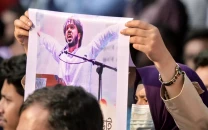
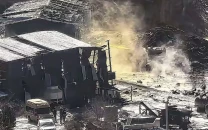
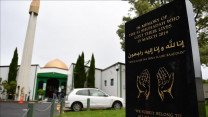
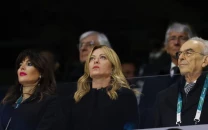
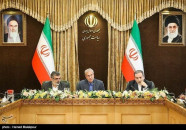












COMMENTS
Comments are moderated and generally will be posted if they are on-topic and not abusive.
For more information, please see our Comments FAQ